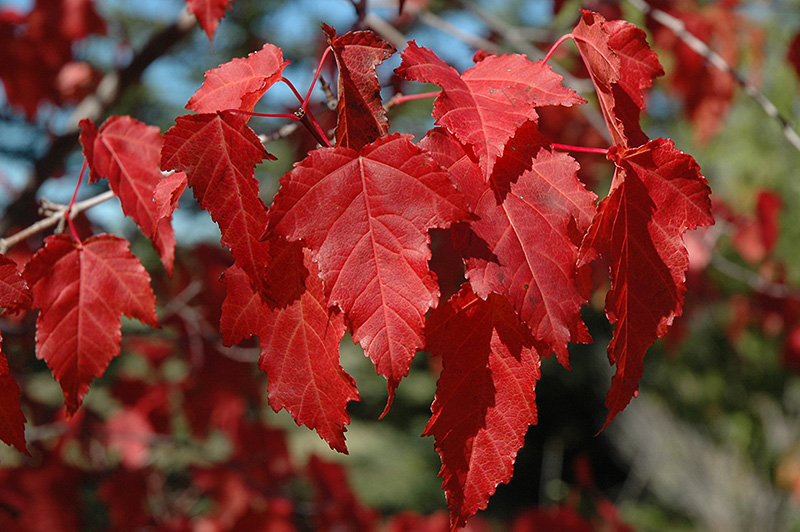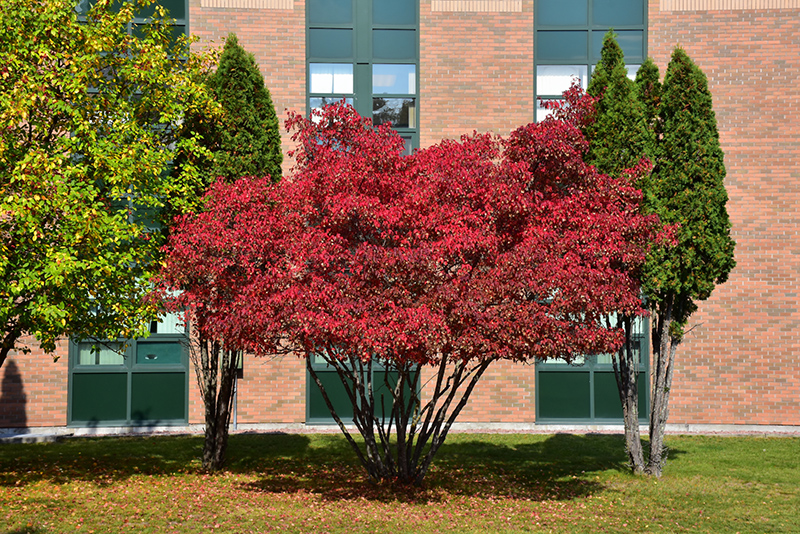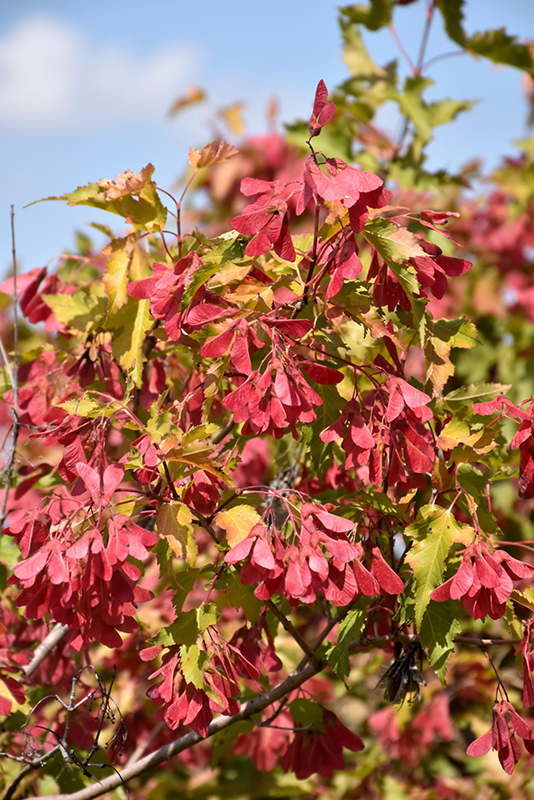>> Home
Height: 20 feet
Spread: 20 feet
Sunlight:
![]()
![]()
Hardiness Zone: 2
Description:
A choice small tree, among the hardiest of all maples; incredible fall colors ranging from orange to scarlet and burgundy red, neat habit and colorful seeds in late summer, one of the best accent trees for small home landscapes
Ornamental Features
Amur Maple is primarily grown for its highly ornamental fruit. It features abundant showy red samaras in late summer. It has dark green deciduous foliage. The lobed leaves turn outstanding shades of orange, scarlet and burgundy in the fall.
Landscape Attributes
Amur Maple is a deciduous tree with a more or less rounded form. Its relatively fine texture sets it apart from other landscape plants with less refined foliage.
This is a relatively low maintenance tree, and should only be pruned in summer after the leaves have fully developed, as it may 'bleed' sap if pruned in late winter or early spring. It has no significant negative characteristics.
Amur Maple is recommended for the following landscape applications;
- Accent
- Mass Planting
- Hedges/Screening
Planting & Growing
Amur Maple will grow to be about 20 feet tall at maturity, with a spread of 20 feet. It has a low canopy with a typical clearance of 4 feet from the ground, and is suitable for planting under power lines. It grows at a medium rate, and under ideal conditions can be expected to live for 60 years or more.
This tree does best in full sun to partial shade. It is very adaptable to both dry and moist locations, and should do just fine under average home landscape conditions. It may require supplemental watering during periods of drought or extended heat. It is not particular as to soil type or pH. It is highly tolerant of urban pollution and will even thrive in inner city environments. This species is not originally from North America.


